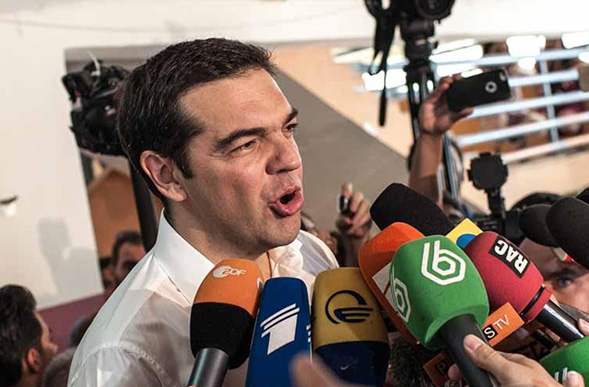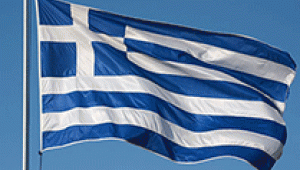tsipras_copy.jpg

Greek prime minister Alexis Tsipras. Shutterstock
The news is the latest development in a long-running and increasingly ugly dispute over measures to ease Greece’s massive debt burden and the strict fiscal targets the country needs to meet to receive it.
Yesterday, the European Stability Mechanism, which finances Greece’s third €86bn bailout deal, announced that it would be putting plans for debt relief on ice because of surprise spending and tax breaks announced by Greek prime minister Alexis Tsipras.
After an overwhelming election win on a fierce anti-austerity ticket, the leftist Tsipras’ popularity has suffered as he backtracked on this in order to secure a bailout and avoid an exit from the euro.
As a goodwill gesture intended to help those hardest hit by the strict austerity Greece has endured for years, Tsipras announced last Friday that an estimated 1.6 million pensioners living on €800 or less per month would receive one off Christmas handouts worth €617m.
He later added that Greek islands that have struggled to cope with the impacts of the refugee crisis would be exempt from a VAT tax demanded by creditors as part of the bailout.
The moves sparked an immediate and sharp response from creditors, but Tsipras refused to retract his announcements. They will not affect Greece’s ability to meet bailout targets and will be funded by the surpluses Greece has achieved, Tsipras said.
He said the Greek people had suffered intensely as a result of austerity and shouldered burdens for the rest of Europe, namely the refugee crisis, and they must be respected.
However, in an equally sudden and unusually decisive move, Greece’s creditors have showed they mean for Athens to respect the terms of the bailout deal too.
The ESM said it would assess the impact of Greece’s decisions on the bailout programme and its targets, and then decide how to proceed.
Michel Reijns, spokesman for the president of the Eurogroup of European finance minister,Jeroen Dijsselbloem, said in a statement:
“The institutions have concluded that the actions of the Greek government appear to not be in line with our agreements. Some member states see it this way also and thus no unanimity now for implementing the short-term debt measures.
“We await a full report of the institutions in January.”
The measures, which were intended to provide some short term relief for Greece’s debt pile, worth 180% of GDP, were only agreed at the start of December after months of discussions.
The International Monetary Fund was one of the key voices supporting debt relief for Greece, and remains insistent that the short-term measures, now put on hold, are insufficient.
The fund has so far declined to participate in Greece’s third bailout because it believes the combination of weak debt relief and over-ambitious fiscal targets, along with the reforms needed to meet them, are unachievable and “not credible”.
This stance was reiterated in a blog post by two senior fund officials earlier this week, which exposed the deep tensions between the IMF, Europe and Greece on the latter’s recovery.
Both Europe and Greece objected the IMF’s claims. Greek officials in particular rebuffed IMF claims that it was not calling for more austerity, only that this was necessary if Greece was to stick to what it sees as unrealistic targets demanded by European creditors.
Tsipras dubbed IMF staff as “foolish technocrats” who “can’t get their numbers right”. He has reportedly hinted he will ask the fund to withdraw its involvement in the bailout altogether. For some of Greece’s European creditors, namely the biggest (Germany and Finland), however, fund participation is critical for the bailout’s credibility.
As relationships between all parties deteriorate, a review of Greece’s progress under this phase of the programme – needed to unlock more funds – seems likely to drag on.












